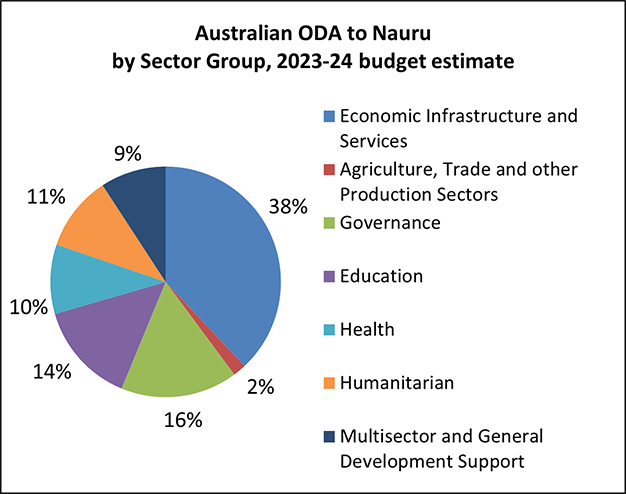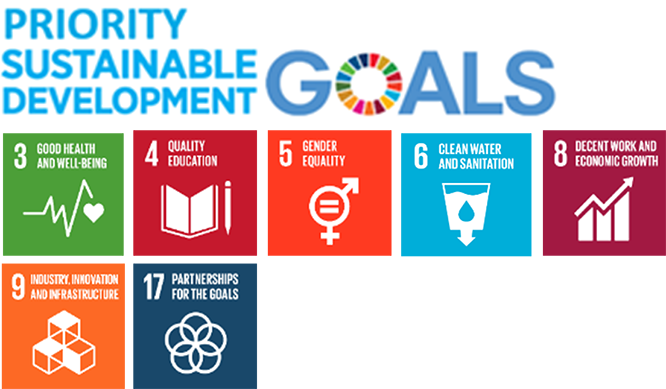May 2024
Download print version
Estimated Australian ODA: 2024-25: $46.0 mil
Gross National Income Per Capita: USD17,800 (2022)
Population: 12,668 (2022)
| Australian ODA | 2022-23 Budget Actual ($m)* | 2023-24 Budget Estimate ($m)* | 2023-24 Budget Estimate ($m)* |
|---|---|---|---|
| Country Programs | 22.2 | 25.9 | 25.9 |
| Regional | 8.3 | 18.5 | 18.5 |
| Global | 0.1 | 0.2 | 0.1 |
| Other Government Departments | 1.3 | 1.5 | 1.5 |
| Total Aust. ODA to AMB | 32.0 | 46.1 | 46.0 |
*Due to rounding, discrepancies may occur between sums of the component items in totals.
Australia is Nauru's largest development, trade and investment partner. We are committed to supporting Nauru's stability and prosperity.
Under the Australia-Nauru Aid Partnership Arrangement, the governments of Australia and Nauru are working together to improve economic growth opportunities and reduce poverty in Nauru. Australia's aid to Nauru includes improving public sector management; investing in nation building infrastructure; and supporting human development, with a particular focus on health and education. Australia’s respect for Pacific priorities is fundamental for our partnerships and will be reflected in the bilateral Development Partnership Plan with Nauru.
Strategic direction
The 2024-25 Nauru program supports Nauru’s priorities in health, education, climate resilient infrastructure, and economic governance, aligning with Nauru’s development priorities and the Sustainable Development Goals (SDGs).
Australia invests in Nauru’s health system to strengthen health preparedness through community-based health clinics and targeted technical assistance. Our new health program, ‘Raña Tsimorum’ (‘look after your life’) will be implemented to strengthen Nauru’s health system to support specific population groups, and human development. (SDG 3).
Nauru’s economic vitality is underpinned by effective public financial management (SDG 17). Our governance partnership with Nauru supports strengthening public sector management and local capacity building. To support long-term economic resilience, we contribute annually to the Nauru Inter-generational Trust Fund. Australia invests in Nauru’s essential infrastructure and services (SDGs 6, 9).
Australia invests in early childhood education, work readiness and skills for labour mobility, and opportunities for women in training and employment pathways through Australia Awards (SDG 4, 8). Aligned with Australia's new International Gender Equality Strategy, the Nauru program supports gender and social inclusion (SDG 5).
Program highlights
- Through the Australian Infrastructure Financing Facility for the Pacific (AIFFP) Australia provides funding for the East Micronesia Cable Project, due for completion in FY2024-25, which will provide secure, reliable telecommunications, and enhanced connectivity; and the Nauru Airport Runway Refurbishment Project.
- Australia continues to support the completion of Nauru’s deep water port.
- The Nauru Education Program focuses on improving student learning and attendance in early primary school, including for students with disabilities.



